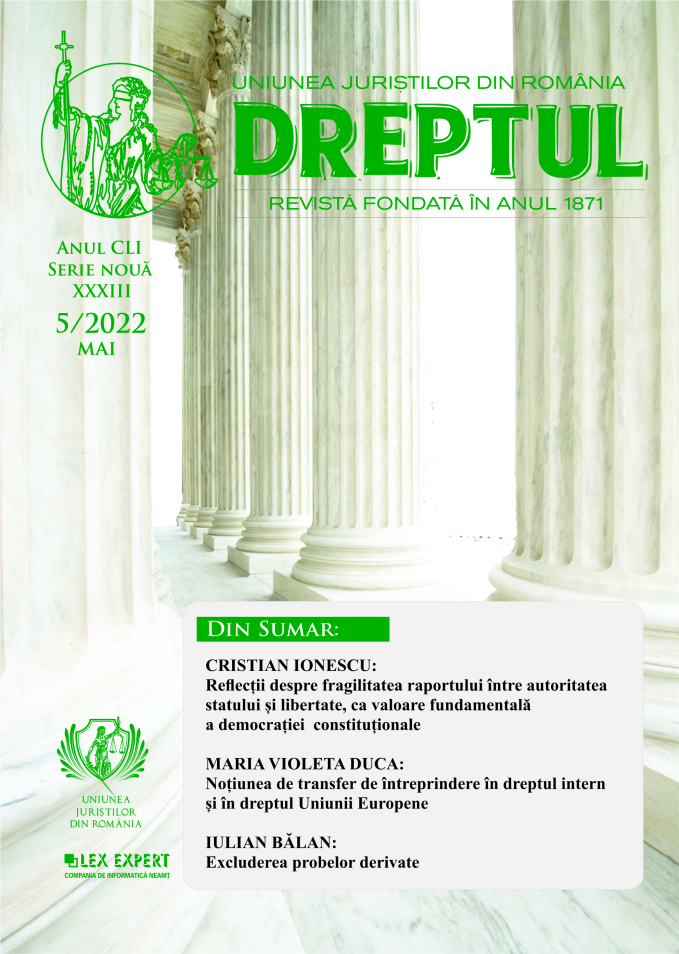Excluderea probelor derivate
Exclusion of derivative evidence
Author(s): Iulian BălanSubject(s): Constitutional Law, Criminal Law, Human Rights and Humanitarian Law, EU-Legislation, Comparative Law
Published by: Uniunea Juriștilor din România
Keywords: Article 3 of the Convention; causation; derivative evidence; entrapment; irradiation of nullity;
Summary/Abstract: It is necessary in the Romanian criminal procedural law to differentiate the conditions for the exclusion of derivative evidence from the conditions for the irradiation of nullity in continental law and to move them closer to the criteria of the fruit of the poisonous tree originating from the United States of America. We adapt these criteria and other criteria from foreign law systems to the context of Romanian law through the standards of the European Court of Human Rights. One of the conditions for excluding the derivative evidence is that the infringement from which it derives requires the exclusion of the resulting evidence to ensure the fairness of the proceedings. The derivative evidence has the capacity to convey the effect of the violation of the rights of the defence, the right to privacy or domestic law on the fairness of the proceedings, but in such situations the unfairness of the proceedings must be established on a case-by-case basis. The unfairness can be automatic if the infringement concerns Article 3 of the European Convention on Human Rights or consists in entrapment by law enforcement officers. The consequence is the automatic, absolute or relative exclusion of derivative evidence, depending on the nature of the infringement. The derivative nature of the evidence is determined quasi-automatically in the case of entrapment. In other cases, it must be concretely established, on the basis of the conditions of the causal link between the infringement and the evidence: the effect of the primary evidence and the effect of the unlawfulness on obtaining the derived evidence. The conditions for the exclusion of derivative evidence have consequences for its applicability. The sanction is not applicable when the primary evidence is not obtained illegally, but is inadmissible by its nature, because in this case the unlawfulness is missing. This condition is met in the case of acts such as arrest, therefore the exclusion of derivative evidence is applicable. The effect of the infringement is transmitted by means of the stress test in the case of early exclusion, occurs directly in the case of a continuing infringement and must be analyzed, mutatis mutandis, in the case of alternative means of proof concerning the same evidence. Since in the case of the irradiation of nullity according to the continental model the effect of the primary evidence is irrelevant and the effect of the unlawfulness is established in the abstract by law, the sanction is distinct from the exclusion of derivative evidence.
Journal: Revista „Dreptul”
- Issue Year: 2022
- Issue No: 05
- Page Range: 92-120
- Page Count: 29
- Language: Romanian
- Content File-PDF

